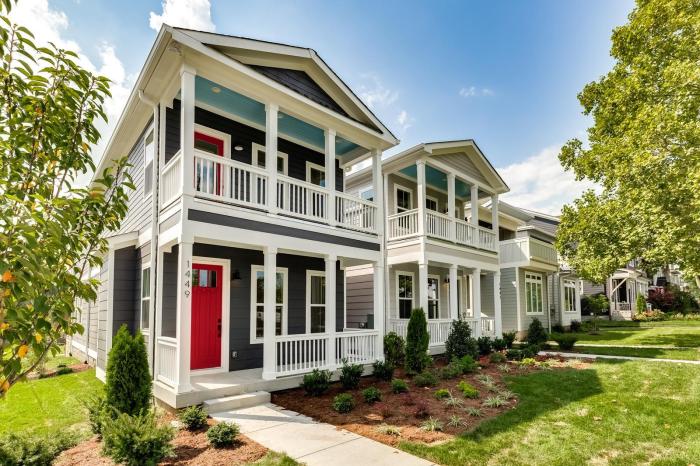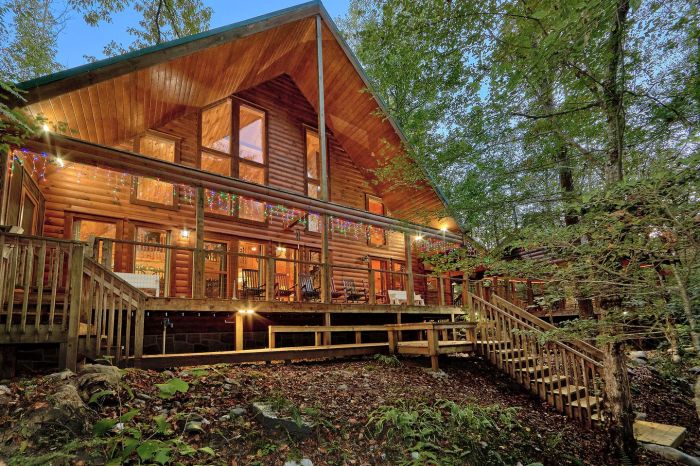Houses in Tennessee for Rent A Comprehensive Guide
Tennessee Rental Market Overview
Houses in tennessee for rent – The Tennessee rental housing market is dynamic and diverse, reflecting the state’s varied geography and economic landscape. Rental costs and property availability fluctuate significantly depending on location, property type, and amenities. Understanding current trends is crucial for prospective renters navigating this market.
Current State of the Tennessee Rental Housing Market
Tennessee’s rental market is currently experiencing strong demand, particularly in urban areas. This high demand is driven by population growth, job creation, and a limited supply of available rental properties. Consequently, rental prices have been steadily increasing in many parts of the state, although the rate of increase varies depending on location and property type.
Rental Price Trends Across Tennessee Cities
Major cities like Nashville, Memphis, and Knoxville show consistently higher rental rates than smaller towns and rural areas. Nashville, in particular, has seen substantial price increases due to its booming economy and influx of new residents. Smaller cities and rural areas generally offer more affordable options, but job opportunities and amenities may be more limited.
Finding the perfect house for rent in Tennessee can be a rewarding experience. If you’re considering options outside of Tennessee, you might explore programs like rent-to-own, such as those available for houses for rent to own in Clinton, NC , which offer a unique path to homeownership. Ultimately, though, the best choice depends on your individual needs and preferences regarding location and financial considerations when searching for houses for rent in Tennessee.
Urban vs. Rural Rental Rates
A significant disparity exists between urban and rural rental rates in Tennessee. Urban areas, with their higher demand and concentration of jobs and amenities, command significantly higher rental prices. Rural areas, while offering lower costs, often involve longer commutes and fewer available services.
Average Rental Prices by Property Type
The following table provides an estimated overview of average monthly rental prices. These figures are approximations and can vary based on location, size, and condition of the property. Actual prices may differ.
| City | Apartment (1 Bedroom) | Apartment (2 Bedroom) | House (3 Bedroom) |
|---|---|---|---|
| Nashville | $1,500 | $1,800 | $2,500 |
| Memphis | $1,200 | $1,500 | $1,800 |
| Knoxville | $1,100 | $1,400 | $1,700 |
| Chattanooga | $1,000 | $1,300 | $1,600 |
Types of Rental Properties in Tennessee
Tennessee offers a diverse range of rental properties catering to various lifestyles and budgets. Understanding the differences between these options is essential for making an informed decision.
Available Rental Property Types
The Tennessee rental market includes single-family homes, duplexes, townhouses, condos, and apartments. Single-family homes offer the most privacy and space, while apartments and condos provide convenience and often include amenities. Duplexes and townhouses represent a middle ground, offering a balance of privacy and community.
Features and Amenities of Rental Houses
Features and amenities vary greatly depending on the price range and location. Higher-priced rentals typically include upgraded appliances, modern fixtures, larger living spaces, and desirable amenities like swimming pools, garages, and updated kitchens and bathrooms. Lower-priced rentals may offer more basic features.
Pros and Cons of Different Property Types
- Single-Family Homes: Pros – Privacy, space, yard; Cons – Higher rent, more maintenance responsibility.
- Apartments: Pros – Convenience, amenities, often lower rent; Cons – Less privacy, limited space, shared amenities.
- Townhouses: Pros – Balance of privacy and community, often include amenities; Cons – Shared walls, less yard space than single-family homes.
- Condos: Pros – Amenities, often well-maintained, secure; Cons – Less privacy than single-family homes, HOA fees.
- Duplexes: Pros – Often more affordable than single-family homes, some yard space; Cons – Shared walls, less privacy than single-family homes.
Factors Influencing Rental Costs in Tennessee
Several key factors significantly impact rental costs across Tennessee. Understanding these influences can help renters budget effectively and find properties that align with their financial capabilities.
Factors Affecting Rental Costs
Location is the most significant factor influencing rental costs. Desirable neighborhoods in major cities command significantly higher rents due to their proximity to employment centers, schools, and amenities. Property size, condition, and the inclusion of amenities such as a swimming pool or updated appliances also significantly impact rental rates. Pet-friendly policies can also increase rental costs.
Impact of Property Location

Source: rentable.co
Rental prices are substantially higher in areas with excellent schools, convenient access to employment centers, and desirable amenities like parks and shopping centers. Conversely, properties located in less desirable areas or those with longer commutes to major employment hubs tend to have lower rental rates.
Rental Costs in Different Cities, Houses in tennessee for rent

Source: fastly.net
Nashville, Memphis, and Knoxville consistently demonstrate higher rental costs compared to smaller cities and rural areas. This disparity is largely attributed to the higher demand driven by job markets and population growth in these larger urban centers.
Influence of Specific Amenities
Amenities such as swimming pools, updated kitchens, in-unit laundry, garages, and pet-friendly policies can add several hundred dollars to monthly rent. These features increase the desirability of a property and, consequently, its rental value.
Finding and Securing a Rental Property in Tennessee: Houses In Tennessee For Rent
Finding the right rental property requires a strategic approach. Utilizing various resources and understanding the rental application process are crucial steps in securing your new home.
Resources for Finding Rental Properties

Source: glampinghub.com
Prospective renters can utilize online listing sites (Zillow, Apartments.com, Trulia), work with real estate agents specializing in rentals, and check local newspapers and community bulletin boards. Networking with friends and colleagues can also yield promising leads.
Rental Application Process
The application process typically involves completing an application form, providing proof of income and employment, undergoing a credit and background check, and paying an application fee. Landlords often require references and may conduct a personal interview.
Understanding Lease Agreements and Tenant Rights
Carefully reviewing the lease agreement is essential. Understanding your rights as a tenant in Tennessee is crucial to protecting yourself and avoiding potential disputes. Resources are available online and through local tenant advocacy groups to help understand your rights and responsibilities.
Checklist for Evaluating Rental Properties
- Property location and neighborhood safety
- Property size and layout
- Appliances and amenities
- Property condition and maintenance
- Lease terms and conditions
- Rental price and associated fees
Illustrative Examples of Rental Houses
The following are hypothetical examples to illustrate the diversity of rental properties available in Tennessee. These are not real listings but rather illustrative scenarios.
Example 1: Cozy Cottage in Chattanooga
This charming 2-bedroom, 1-bathroom cottage is located in a quiet neighborhood near downtown Chattanooga. It features a small yard, updated kitchen, and is within walking distance of local shops and restaurants. The monthly rent is approximately $1,200.
Example 2: Modern Townhouse in Nashville
This modern 3-bedroom, 2-bathroom townhouse is situated in a vibrant Nashville neighborhood. It includes a private balcony, in-unit laundry, and access to a community pool. The monthly rent is approximately $2,200, reflecting its desirable location and amenities.
Example 3: Spacious Farmhouse in Rural East Tennessee
This spacious 4-bedroom, 2-bathroom farmhouse is located on several acres of land in rural East Tennessee. It features a large yard, a screened porch, and offers a peaceful, secluded lifestyle. The monthly rent is approximately $1,500, reflecting its location outside a major city.
Neighborhood Considerations in Tennessee
Choosing the right neighborhood is crucial for a positive rental experience. Several key factors should be carefully considered before selecting a rental property.
Key Factors When Choosing a Neighborhood
Factors to consider include safety statistics (crime rates), proximity to schools (if applicable), commute times to work and other essential destinations, and access to amenities such as grocery stores, hospitals, and recreational facilities. The overall atmosphere and community feel should also be considered.
Comparing Neighborhoods within a Major City
Within a city like Nashville, neighborhoods can vary dramatically in terms of cost of living, amenities, and atmosphere. Some neighborhoods offer walkability and vibrant social scenes, while others prioritize quiet suburban living. Researching the specific characteristics of each neighborhood is crucial.
Examples of Desirable Neighborhoods
Examples of desirable neighborhoods in Tennessee vary across the state. Germantown in Memphis is known for its historic charm and walkability. Belle Meade in Nashville is a prestigious area known for its upscale homes and quiet atmosphere. Downtown Knoxville offers a vibrant urban experience with easy access to cultural attractions.
Quick FAQs
What is the average security deposit in Tennessee?
Security deposit amounts vary depending on the landlord and property, but are often equivalent to one or two months’ rent.
What are my rights as a tenant in Tennessee?
Tennessee has specific tenant rights concerning lease terms, repairs, and eviction notices. Consult the Tennessee Attorney General’s website or a legal professional for detailed information.
How long does the rental application process typically take?
Processing times vary, but expect a timeframe of a few days to a couple of weeks, depending on the landlord’s process and the volume of applications.
Can I negotiate rent or lease terms?
Negotiating rent or lease terms is possible, especially in a less competitive market. Presenting a strong application and demonstrating your reliability as a tenant can improve your negotiating position.




















